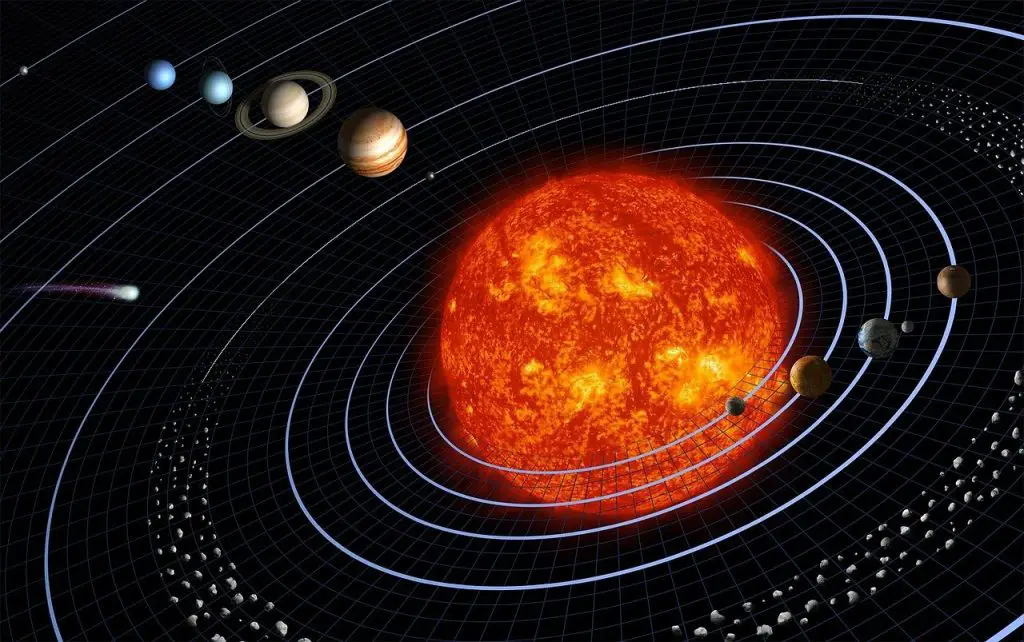The search for life across the universe has inspired scientists to advance their search for extraterrestrials starting from our neighboring planets. Even though Venus has a hostile surface that cannot sustain any form of life known to humans, researchers in the past have discovered that the planet’s clouds may ingredient of life. Life on Venus may be possible as a new study clearly support the presence of phosphine, a rich ingredient of life on the planet’s clouds. How did the scientists come up with this discovery? Continue reading to find out.
How Scientists Discovered Molecule Phosphine Which May Stand As a Prove of Life on Vens in the Planet’s Clouds
A group of scientists led by Jane Greaves of Cardiff University in Wales discovered phosphine, a promising ingredient of life in the clouds of Venus in September 2020. The team announced their discovery which aroused several debates across the scientific community. Many researchers commenced follow-up studies to check the presence of this molecule phosphine on Venusian clouds. After researchers failed several times to detect phosphine on Venus, Greaves and her team seem to return a new hope to the scientific community.
During a presentation at the Royal Astronomical Society’s National Astronomy Meeting 2023 in Cardiff this week, Greaves announced their new findings of phosphine in the deeper part of Venus’ atmosphere. Unlike the previous discovery, the astronomer revealed that their latest findings are much deeper.
Greaves and her team used the James Clark Maxwell Telescope (JCMT) at the Mauna Kea Observatory in Hawaii to observe deeper into the clouds of Venus up to the middle point of the atmosphere. The scientists assume that the phosphine could be originating from lower regions in Venus’ clouds. However, Greaves during her speech, suggested that Phosphine could be evidence of alien life on Venus.
She also revealed that phosphine on Earth is produced by microorganisms residing in an environment with extremely low oxygen. The scientist confidently described how phosphine is not created in similar ways on Earth as it is on Venus. This is because our planet does not have loose hydrogen in excess. Hence, researchers are suggesting that the detection of phosphine is a sign of biosignature on other space worlds.
What Scientists Think About This Discovery in Search of Life on Venus
Venus’ surface is completely hostile to lifeform as its temperature reaches around 900 degrees Fahrenheit (475 degrees Celsius). However, temperatures found within 30 miles (50 kilometers) above Venus’s surface up into the clouds are more similar to Earth. Hence, the Earth-like temperatures in the clouds of Venus made it possible for phosphine to exist in the planet’s atmosphere. But some scientists are suggesting the presence of phosphine does not prove the presence of life on Venus.
Researchers reveal that abiotic processes occurring in the Venusian atmosphere may be producing what other scientists referred to as evidence of life. Currently, scientists are yet to fully understand the abiotic processes. However, with time, they will learn everything about these processes and advance our search for alien life on Venus.
“There’s a big school of thought that you can make phosphine by lobbing phosphorus-bearing rocks up into the high atmosphere and kind of eroding them with water and acid and stuff and getting phosphine gas,” Greaves said during her recent speech.
In addition, Greaves revealed that she and her team decided to study Venus in 2020 due to the outcome of the study carried out from other space worlds like Saturn.
“I vaguely remembered Venus is supposed to have this potential habitat in the high clouds, which is anaerobic, and we eventually got telescope time, so I thought, ‘Why don’t we have a very quick look and see if there are some phosphates in Venus clouds, an analog to things living on the surface of the Earth?'” Greeaves said. “Astonishingly, we found it, and all hell broke loose!”
Conclusion
A scientific discovery like this often opens the door for follow-up studies. While scientists have continued to debate the latest findings, the team that conducted this study has remained hopeful about the future of finding life outside Earth. In addition, two NASA future missions to Venus named VERITAS and DAVINCI and Europe’s EnVision orbiter are planned to launch by next decade. NASA announced that DAVINCI will take a probe to study the Venusian cloud as it descends. Let’s hope that we will learn a lot from this mission. What do you think about this scientific discovery?




